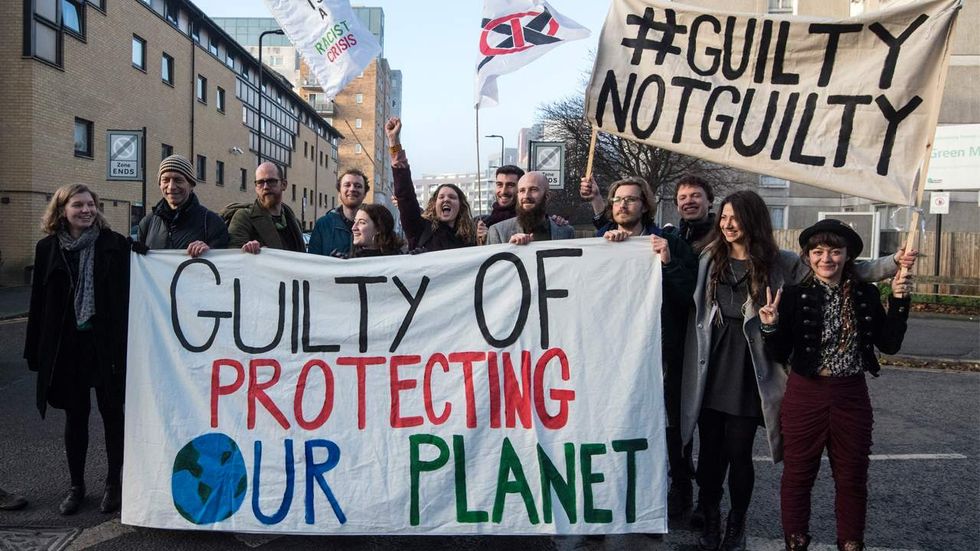
A new study published in the highly influential journal Nature suggests rising global temperatures during the 19th and 20th centuries may be linked to greater plant photosynthesis. (Carl Court/Getty Images)

A new study published in the highly influential journal Nature suggests rising global temperatures during the 19th and 20th centuries may be linked to greater plant photosynthesis.
The study, conducted by researchers at the University of California at Merced, estimated based on its models “the sum of all plant photosynthesis on Earth grew by 30 percent over the 200-year record captured,” according to an article published on the UC Merced website.
Photosynthesis is the process of converting carbon dioxide into carbohydrates, which power plants, using sunlight.
According to the UC Merced article, “The research did not identify the cause of the increased photosynthesis, but computer models have shown several processes that could, together, create such a large change in global plant growth.”
“The leading candidates are rising atmospheric CO2 levels, a result of emissions from human activities; longer growing seasons, a result of climate change caused by CO2 emissions; and nitrogen pollution, another result of fossil fuel combustion and agriculture,” the article also claims.
In other words, more carbon dioxide, which is being produced by humans at record levels, has improved plant growth, which in turn improves food production for humans and animals.
“The rising CO2 level stimulates crops yields,” said lead researcher Elliott Campbell, a professor at UC Merced.
Campbell said the evidence shows “a fundamental shift in the Earth’s plants” and that “global plant growth should be a central goal for the human race.”
However, don’t too excited, Campbell warns. He says despite the researchers’ findings, which clearly show global warming helps plants—and thus also helping humans and animals—global warming has many negative effects, too, such as causing “climate change, which will increase flooding of coastal cities, extreme weather and ocean acidification.”
The researchers’ study in Nature provided no proof of the claim global warming is caused by humans or that global warming will cause the severe problems Campbell said it will in the quotes provided by the UC Merced article. The study also offered no solutions for reducing greenhouse-gas emissions without causing severe economic and social problems for billions of people.
The study did, however, show increased carbon-dioxide levels have, generally, helped plants and crops.
(H/T: Watts Up With That)
Justin Haskins